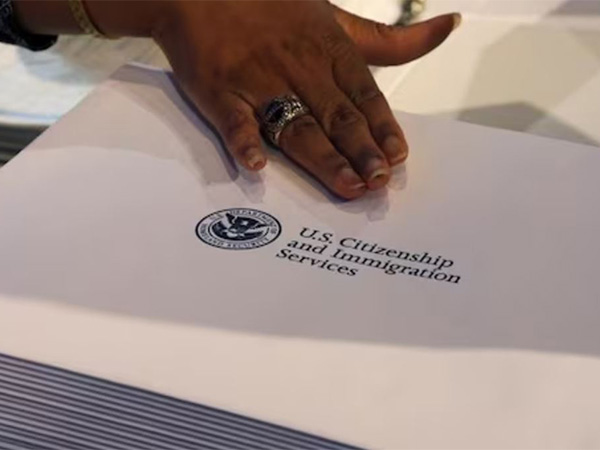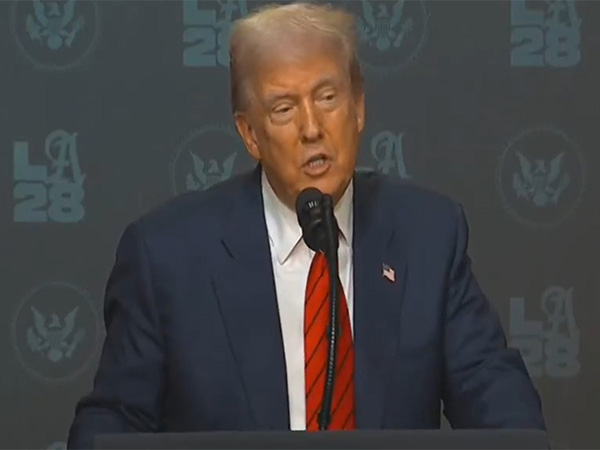Japan debating on response to China's new coast guard law
Feb 15, 2021

Osaka [Japan], February 15 : Amid the growing belligerence of China in the East and South China Sea following Beijing's enactment of a new coast guard law, Japan is now deliberating on an apt response to the legislation, which is poised to escalate tensions in the region.
The new Chinese law allows Beijing's coast guard to use weapons against foreign ships that it sees as illegally entering its waters, sparking fear that Japanese vessels navigating around the Senkaku Islands would be targeted.
A 2020 US Department of Defense report notes that over the past decade, China has more than doubled the number of large coast guard ships over 1,000 tons, from about 60 in 2010 to over 130 as of last year, writes Eric Johnson for The Japan Times.
As per the new law, China's coast guard can now forcibly remove buildings constructed by other countries on territories claimed by the country and authorises the use of water cannons, handcuffs and tear gas to force a vessel to stop and be boarded.
As the Senkaku islands are claimed by both Beijing and Tokyo and the South China Sea is claimed by the Philippines, Taiwan and Vietnam, among others, China's position is that the new law streamlines operations and that the use of force is a common practice among the other nations, including Japan and South Korea.
Earlier this month, during a video meeting, Tokyo had conveyed its 'strong concerns' to China over the new law authorising military force in the waters. China must not use the legislation, in a way that goes against international law, said Chief Cabinet Secretary Katsunobu Kato.
However, China continues to claim that the Senkaku Islands are the country's 'inherent territory'.
In December last year, Toshinari Matsuo, director of the Operational Law Office at Japan's Maritime Self-Defense Force's Command and Staff College, wrote that the new law went beyond the norms established by the United Nations Convention on the Law of the Sea (UNCLOS), reported The Japan Times.
The law states that a coastal state may take the necessary steps against foreign vessels passing through its territorial waters if their passage is not innocent.
Furthermore, UNCLOS allows for limited functional jurisdiction outside territorial waters, but only where territorial sovereignty is internationally recognised and not, as is the case with the Senkakus or the South China Sea, where territorial sovereignty is disputed, writes Johnson.
Meanwhile, US President Joe Biden has reaffirmed the previous US policy that the Senkaku islands are covered under Article 5 of the US-Japan security treaty. However, Japan spotted Chinese government vessels inside contiguous and territorial waters near the uninhabited Senkakus for a record 333 days.
With the passage of China's new law, concerns remain whether there would be enough time for Japan, under its current laws, to effectively respond to an armed attack.
In the past, there was some debate about changing the law to allow the Self-Defense Forces (SDF) to respond, under specifically defined conditions, at the same time as the Japan Coast Guard or the police. But there is reportedly opposition within the transport ministry, which is in charge of the coast guard, as well as the National Police Agency, according to The Japan Times.
Johnson further wrote that the move could also be politically controversial and can create tensions between the immediate need to respond to a threat and the fear that sending in armed forces could escalate a hostile situation further.
In the early 2010s, China and Japan were mired in a territorial row over the Senkakus. Beijing has rapidly built up artificial islands with military infrastructure in the region, in its claim of sovereignty over almost the entire maritime region.
Moreover, China has conflicting territorial claims with four of the ten members of the Association of Southeast Asian Nations -- Brunei, Malaysia, the Philippines and Vietnam -- as well as Taiwan in the South China Sea.
Meanwhile, US warships carried out freedom of navigation operations in an apparent bid to challenge Chinese claims and actions in the area.




















